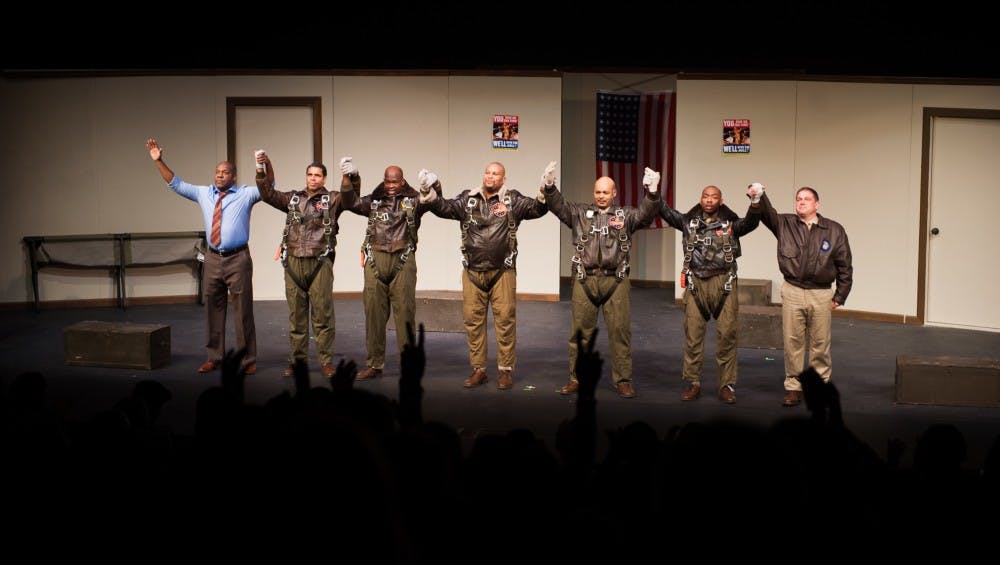Athletic director Ray Anderson and his wife, Buffie, love the “Black Angels over Tuskegee.”
Buffie has seen it “six or eight times”, Anderson said. He has “five or six.”
They love its message about teamwork, dedication and persistence.
They love its culturural roots.
They shared their passion of the production with several groups after seeing it for the first time in 2010.
“I took a good number of my NFL staff members to see it and that group was so inspired that the word spread,” Anderson said.
Buffie showed it to her friend who worked for the New York Jets. For the next two summers, head coach Rex Ryan took his entire team and staff to see it.
Ryan even brought the play to Buffalo when he went to coach for the Bills.
This gave Buffie the idea to bring it to ASU. She and Anderson then took the idea a step further.
Creating a tradition to give senior-athletes at ASU a present. Nothing tangible; an experience that will remain with them.
“Every year, we’d like to present a unique cultural experience for our seniors as part of their voyage here at ASU,” Anderson said.
In the first ever senior-gift at ASU, the senior athletes were given the opportunity to see “Black Angels over Tuskegee” in Galvin Playhouse on Tempe campus on Thursday night.
The production even gives a strong message to the “student” part of student-athletes — as the actors repeat three times, “Education is key.”
The play is about five African Americans attempting to go through the first basic training sessions for the U.S. Air Force. Discrimination is unlawful, but segregation still exists in the form of Jim Crow. As the five go through training and tell their unique stories about how racism has effected them while experiencing it despite attempting to protect their country, the audience gets an emotional feel of friendship, love and loss.
Women's basketball senior guard Elisha Davis summarized the experience in a Q&A session with the actors after the play was over. She called it “re-motivating.”
“I just wanted to say thank you for giving me the extra push that I needed, and that I do need, to continue to stay in the moment, in the present, and I appreciate my opportunity because a lot of people don’t have it,” she said.
The Q&A consisted of about three questions. Everybody else who spoke just talked about how much the play meant to them. Many middle-aged to elderly African Americans stood and thanked the cast, and Walter Richardson, whose dad was a Tuskegee Airmen, shook hands with each member before the session started.
The only problem: not many athletes were there.
Many were on the road competing. The men's basketball team missed it. The wrestling team was gone. Gymnastics was already on the road.
Very few, if any, football players were in attendance.
The audience was filled with alumni and representatives within Sun Devil athletics, giving them an opportunity to see the production.
Senior soccer player McKenzie Berryhill, who was recently drafted to the Portland Thorns, said she hadn’t heard much about the play.
“I’m excited just to go in and see what it’s about,” she said.
After watching the two-act, single-set play, senior volleyball player Macey Gardner said she thinks this opportunity should be expanded to anybody within the athletics, no matter their grade.
“It just puts everything in perspective that you’re not just here for that diploma, you’re here for the piece of paper,” she said. “You’re here to make relationship and you’re here to fight, you’re here to do well."
Editor’s note: Due to NCAA compliances, only players no longer eligible for spring sports were allowed to be interviewed for this article.
Reach the sports editor at logan.newman@asu.edu or follow @Logan_Newsman on Twitter.
Like State Press Sports on Facebook and follow @statepresssport on Twitter.




